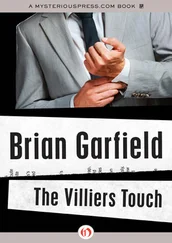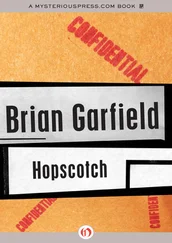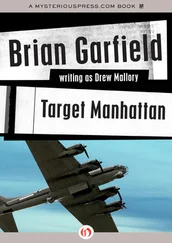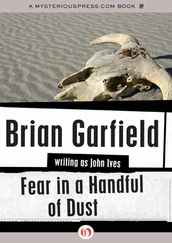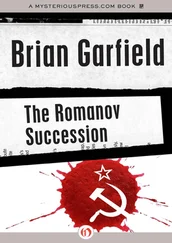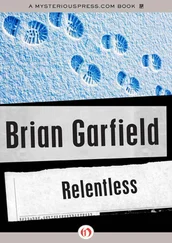Brian Garfield - Kolchak's gold
Здесь есть возможность читать онлайн «Brian Garfield - Kolchak's gold» весь текст электронной книги совершенно бесплатно (целиком полную версию без сокращений). В некоторых случаях можно слушать аудио, скачать через торрент в формате fb2 и присутствует краткое содержание. Жанр: Политический детектив, на английском языке. Описание произведения, (предисловие) а так же отзывы посетителей доступны на портале библиотеки ЛибКат.
- Название:Kolchak's gold
- Автор:
- Жанр:
- Год:неизвестен
- ISBN:нет данных
- Рейтинг книги:3 / 5. Голосов: 1
-
Избранное:Добавить в избранное
- Отзывы:
-
Ваша оценка:
- 60
- 1
- 2
- 3
- 4
- 5
Kolchak's gold: краткое содержание, описание и аннотация
Предлагаем к чтению аннотацию, описание, краткое содержание или предисловие (зависит от того, что написал сам автор книги «Kolchak's gold»). Если вы не нашли необходимую информацию о книге — напишите в комментариях, мы постараемся отыскать её.
Kolchak's gold — читать онлайн бесплатно полную книгу (весь текст) целиком
Ниже представлен текст книги, разбитый по страницам. Система сохранения места последней прочитанной страницы, позволяет с удобством читать онлайн бесплатно книгу «Kolchak's gold», без необходимости каждый раз заново искать на чём Вы остановились. Поставьте закладку, и сможете в любой момент перейти на страницу, на которой закончили чтение.
Интервал:
Закладка:
There was nothing sensitive in those files. It was only that no one had asked to see them before I came along. They’d remained under lock and key. When you took them out you had to blow the dust off them.
In the course of researching that book and others in the long warehouse, I developed a fair working knowledge of the scope and coverage of the NARS collections. I came to know the pale people who worked there, and the ways in which I could trace the erratic paths of reference in their muddled index of dusty possessions. In the end I followed those paths too far, I suppose: being a writer made me a scholar of sorts; being a scholar forced me to be a detective; being a detective made me a fugitive.
My mother was Ukrainian, perhaps I should explain that. She lived in Sebastopol until 1935, when freak circumstances permitted her to leave the Soviet Union. She immigrated to England. My father in those days had a minor post with the American Embassy in London.
They met one evening at the Haymarket Theatre; they were married in 1936. I was born in 1938 on board an ocean liner at a spot south of Iceland on a voyage from Southampton to New York; since my parents were of separate citizenships and I had been born on the high seas, I was allowed my choice of nationality when I reached my majority in 1959. I have carried an American passport ever since then but a good part of my childhood was spent outside the United States: Ottowa during the war, then London again-my father then Second Secretary to the Ambassador to the Court of St. James-then Bonn for two years, and a further two years in Switzerland. I went to a variety of schools and acquired four languages including my mother’s native Ukrainian dialect, as well as German, English and St. Petersburg Russian.
During the war my mother’s relatives managed occasionally to get letters out to her. She saved these carefully in a leather case and in later years she would let me read them. As far as any of us knew, all her relatives in the Crimea and the Ukraine had perished in the war. I’m sure it was those letters, and my mother’s childhood memories, which inspired me to write my first book on the Russian Civil War and to lay elaborate plans to write the definitive history of the Nazi seige of Sebastopol-the project which took me into the Soviet Union in February 1973 and culminated in those alarming events with which this account is concerned.
When I was researching my book on the Nazi spies I first encountered German documents that referred to the Sebastopol siege. I had thought that such documents would be in Russian hands today, but that isn’t altogether the case.
The Germans were compulsive paperwork addicts; our own Pentagon can hardly match the Nazi mania for record-keeping, which helped doom many of the war-crimes defendants: their bestiality was attested by document after damning document, many of them sealed with their own signatures.
When the Wehrmacht advanced it sent back its records to the Fatherland. When it retreated it took its records along. Nothing was left behind. Amazingly few records were destroyed, until right at the end of the war a belated effort was made to erase the evidence they had so carefully amassed against themselves. But at that point everything was collapsing around them and the ranking officers fled to preserve their skins while their subordinates found more pressing engagements than record-burning; so that a vast body of Nazi history fell intact into Allied hands at the end of the war in Germany.
Among these records were voluminous files from the Crimea. Even in rout; even under siege; even in the panic of desperate flight from the Red armies, the Germans threw their own wounded off trains and ships in order to make space for the transhipment to Germany of their paper records.
These trainloads fell into American hands, mainly in Austria, in 1945. Most of them were taken to Berlin (the American sector) for examination. Harried men, assigned to the Strategic Bombing Survey and the Allied Military Government in postwar Germany, had the jobs of sorting these endless millions of documents; collating them, indexing them, finding places to store them. (For a while many of them were kept in the bombed and burnt-out remains of the old Reichstag.)
Many were not indexed with any care. The principal target of the hunt was documents to incriminate those accused of war crimes; anything that didn’t seem to have a direct bearing on that objective was discarded and consigned to the oblivion of “miscellany.” Later, when the military occupation ended, the American forces brought the captured material back with them. Most of it was stored intact and unopened; in the intervening years it has been examined piecemeal but there has never been any systematic attempt to get it sorted out. There is still enough unopened material to keep historians busy for a century.
When I came across the first clues I was tempted to shelve the book on Nazi spies and plunge straight into the Sebastopol material. I did abandon the spy book for several weeks until it became obvious that I was not going to get enough material from those files to justify doing that particular book. The key material was Russian; and of course it remains in the Soviet Union.
Clearly I had to have access to the Russian archives. I began to make approaches to the Soviet government, by mail and through their embassy in Washington, while at the same time I returned my immediate attention to the Abwehr and Gestapo records and proceeded to complete that project.
Predictably the Soviet authorities were obstructionist; I knew it would take years to break down the barriers, if it could be done at all. At that time no Western historian had been allowed into any Soviet archive.
I hoped my dual nationality would help. Also there was the fact that I had treated the Russians fairly in all my books, particularly my history of the Russian Civil War-my first book. I hoped that would count for something. (Since then some things have changed. Even then I was dabbling with material for a book on Aleksandr Kolchak and the White armies. But the Soviets weren’t to know that.)
I completed the manuscript of the Nazi spy book in the autumn of 1965. After that there were the usual revisions, the work of obtaining photographs to illustrate the book, the preparation of the bibliography and index, all the other irritating post-partum chores that go into the publication of a book which from the author’s point of view is already completed. It was well into 1966 before I had breathing space in which to begin the next project.
The Soviets still hadn’t budged. I was making pleas through intermediaries by then-old friends of my father’s, people in the diplomatic corps-but none of it had worked; the Russian archives were still closed to me. It was going to take years, if it was to happen at all. To the Soviets history is not a source, not a tool, but a god. Like all gods its interpretation is subject to revision-periodic expedient changes to fit the requirements of the present. No crime, regardless how heinous, can be condemned if it is performed in the service of Red history-a system of rationalization which is reminiscent of the Inquisition and the Crusades. But as long as history is the Red religion it is small wonder that the Soviets resist incursions by outside students, and I had few illusions about my chances.
So I turned to the Aleutian campaigns and spent two years on them (1966–1968), after which I assembled the vignettes that went into The Master Spies.
Those were years when my daughter died in a stupid accident and my marriage broke up. I mention those things only to explain why I did not devote more wholehearted efforts to opening Russian doors a crack. I had too many problems. For a while my work took a back seat; in fact for more than a year I was drinking too much to do decent work. But I don’t mean this to be a confession or an apologia; my personal life has only a limited bearing on the facts that must be divulged here.
Читать дальшеИнтервал:
Закладка:
Похожие книги на «Kolchak's gold»
Представляем Вашему вниманию похожие книги на «Kolchak's gold» списком для выбора. Мы отобрали схожую по названию и смыслу литературу в надежде предоставить читателям больше вариантов отыскать новые, интересные, ещё непрочитанные произведения.
Обсуждение, отзывы о книге «Kolchak's gold» и просто собственные мнения читателей. Оставьте ваши комментарии, напишите, что Вы думаете о произведении, его смысле или главных героях. Укажите что конкретно понравилось, а что нет, и почему Вы так считаете.

